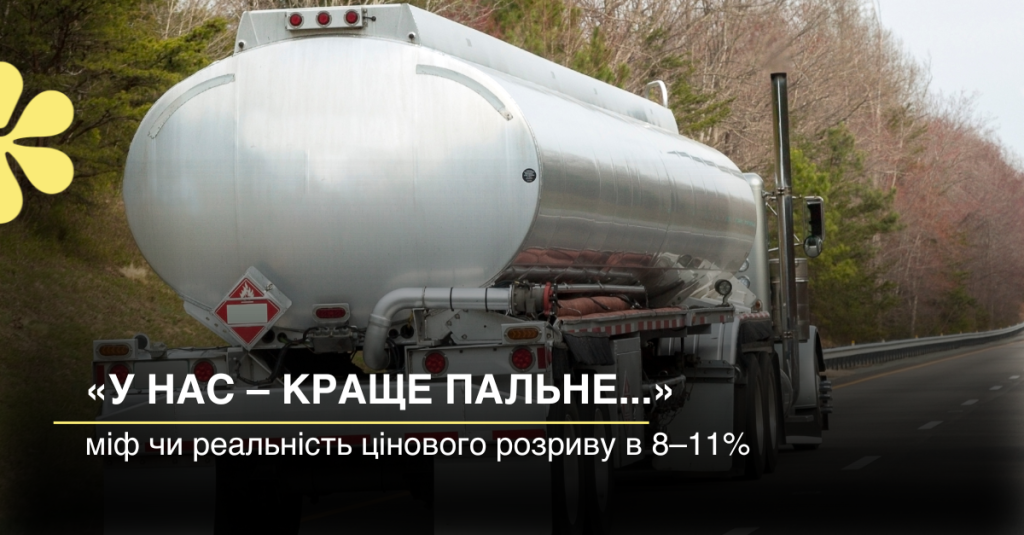For years, a persistent belief has existed in Ukraine: if fuel is expensive, it must be of higher quality. This marketing myth has been successfully maintained by large networks. The Fuel and Energy Business Association (FEBA), together with experts investigated what the “premium nature” of the fuel truly entails and why the price is 8–11% higher (and sometimes up to 20%) if the basic quality is the same for everyone.

Myth #1: More Expensive = Higher Quality? The Legislative Fact
The industry has lived for years under the slogan, “Buy more expensively because only we have quality!” However, FEBA stresses that this myth has not been true since 2018!
According to the provisions of the Technical Regulation, only fuels that meet its requirements, specifically the Euro-5 environmental class, are permitted for circulation at domestic gas stations. This means:
Minimum Standard is Unified: The quality of fuel that meets the Euro-5 class is a legislative norm for everyoperator—whether a large national network or a regional discounter.
State Control: Fuel quality is controlled by the state. The risks of selling “inferior” fuel are minimized, and violations lead to strict sanctions.
Why Is the Price 8–11% Higher? The Secret of the Large Margin
If the basic quality level is guaranteed to be the same for everyone, then what constitutes the “improvement” to justify the higher price? FEBA’s analysis experts showed:
Real studies found no critical differences: Checking samples of A-95 gasoline from the largest nationwide networks (WOG, OKKO, UKRNAFTA) and serious regional players confirmed that the samples comply with basic standards.
Price is determined by marketing and infrastructure: The premium markup covers the costs of expensive marketing programs, powerful branding, and additional services in large cafes and convenience stores. You are not paying for different fuel; you are paying for different infrastructure and a brand.
MSBs Offer a Fair Price: Protecting Competition
The lower price offered by discounters (MSBs) is not a sign of lower quality but a sign of an efficient operational model and lower marketing costs.
Attempts to force MSBs out of the market by using the narrative of “low-quality” fuel or by introducing disproportionate tax mechanisms (such as the advance payment) are nothing more than a tactic of monopolization. Its goal is to deprive the consumer of choice and force them to buy fuel only at large networks for an inflated price.

